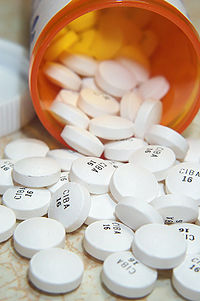
Stimulants (also known as central nervous system stimulants, or psychostimulants, or colloquially as uppers) are a class of drugs that increase the activity of the brain. They are used for various purposes, such as enhancing alertness, attention, motivation, cognition, mood, and physical performance. Some of the most common stimulants are caffeine, nicotine, amphetamines, cocaine, methylphenidate, and modafinil.
Stimulants work by affecting the levels of certain neurotransmitters, such as dopamine, norepinephrine, serotonin, histamine and acetylcholine, in the synapses between neurons. Stimulants sometimes also work by binding to the receptors for neurotransmitters. These neurotransmitters regulate various functions, such as arousal, attention, the reward system, learning, memory, and emotion. By increasing their availability, stimulants can produce a range of effects, from mild stimulation to euphoria, depending on the specific drug, dose, route of administration, and individual factors.
Stimulants have a long history of use, both for medical and non-medical purposes. They have been used to treat various conditions, such as narcolepsy, attention deficit hyperactivity disorder (ADHD), obesity, depression, and fatigue. They have also been used as recreational drugs, performance-enhancing substances, and cognitive enhancers, by various groups of people, such as students, athletes, artists, workers, and soldiers.
However, stimulants also have potential risks and side effects, such as addiction, tolerance, withdrawal, psychosis, anxiety, insomnia, cardiovascular problems, and neurotoxicity. The misuse and abuse of stimulants can lead to serious health and social consequences, such as overdose, dependence, crime, and violence. Therefore, the use of stimulants is regulated by laws and policies in most countries, and requires medical supervision and prescription in some cases.